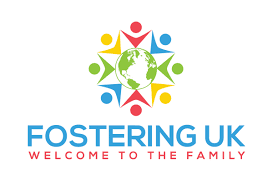According to UK Fostering - Despite the available resources and potential benefits of adoptions, there are still difficulties for kids and families.
It's Highly Unlikely to Adopt a Baby
While adopting a child through a private agency is frequently possible, it is doubtful that foster parents will be allowed to adopt a child through the foster care system.
That is not to argue that newborns are never taken away from their parents; in fact, they often are. The first people in line to adopt a baby if it becomes available later may be the foster parents who take on care of the child from the time of delivery.
However, 8.2 is the average age of children who enter foster care. This indicates that older children, as opposed to infants, toddlers, and preschoolers, are far more readily accessible for adoption.
Not much history
While every attempt is taken to learn as much as possible about a kid's past, there are situations when very little is known about the struggles a child has faced. It's possible that the birth parents won't be completely honest. It's possible that a child hasn't interacted with teachers, doctors, or childcare staff. Additionally, obtaining a history may be challenging, if not impossible, due to the frequent changes of caregivers.
Trauma
Foster children are taken out of their parent's care for a cause. Children are put in foster care for a variety of reasons, including neglect, exposure to domestic violence, parental substance addiction, physical abuse, emotional abuse, and sexual assault. They have virtually always suffered trauma as a result of this.
As a result, individuals could experience learning difficulties, behavioural abnormalities, developmental delays, and mental health issues. Problems don't always show up immediately away. Consequently, the severity of a child's problems might not be clear at the time of the adoption.
Particular Needs
Children in foster care frequently have particular needs. For instance, infants exposed to drugs or alcohol are more likely to experience medical problems and developmental difficulties.
Other problems, such as lead poisoning or malnutrition, affect certain foster children. They can consequently continue to have health issues.
Mental health problems can be widespread as well. After being taken away from their original family, children may struggle with attachment or even develop mental diseases like anxiety and depression.
Adoptive
foster families should get ready to care for a child's special needs. A youngster can need regular medical visits, which can be costly and necessitate parents taking a lot of time off from work. There can also be a ton of meetings with school administration or difficulties locating suitable daycare.
Approving Procedure
Parents must go through a lengthy approval process before being permitted to adopt through foster care services. It can resemble the approval procedure parents go through to complete a private adoption.
Typically, there are background checks, classes, a home study procedure, and interviews. This might take anything from six months to a year, depending on the state.
The majority of states don't pay for any house upgrades necessary to meet safety standards. These modifications could be anything from enlarging bedroom windows to provide a youngster with an escape route in the case of a fire to installing new stair railings.
Message From Verywell
Contact your state's child welfare system to learn more about the procedure if you think you might want to foster children, whether you want to offer a temporary home or you think you might want to adopt. You and your family might decide that providing a loving, stable home for a kid in foster care is the best course of action.




Comments
Post a Comment